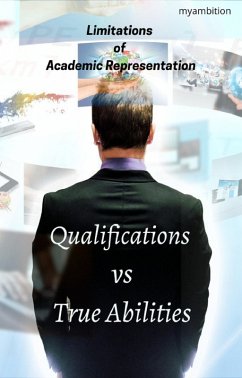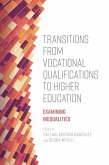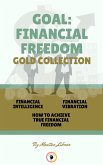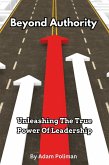"Qualifications vs. True Abilities" delves into the complex relationship between academic qualifications and individuals' true abilities. The ebook explores the limitations of relying solely on academic qualifications to gauge an individual's capabilities, while emphasizing the importance of recognizing and valuing true abilities that extend beyond traditional educational credentials.
Understanding Academic Qualifications This section introduces the concept of academic qualifications and their significance in educational systems. It discusses the purpose of degrees, diplomas, and certifications as recognized credentials that validate a person's educational achievements.
The Complex Nature of True Abilities True abilities encompass a broader range of skills, talents, and personal qualities that individuals possess. This section explores the multifaceted nature of true abilities, including emotional intelligence, creativity, problem-solving skills, adaptability, and interpersonal skills.
Limitations of Academic Qualifications This section delves into the limitations of academic qualifications in capturing the entirety of an individual's abilities. It discusses how academic qualifications may favor certain learning styles, overlook personal qualities and experiences, and fail to assess practical skills and real-world application.
Recognizing and Valuing True Abilities This section emphasizes the importance of recognizing and valuing true abilities beyond academic qualifications. It highlights the significance of personal qualities, such as motivation, resilience, adaptability, and interpersonal skills, in various personal and professional contexts.
Moving Towards a Comprehensive AssessmentThis section discusses strategies and approaches for moving towards a more comprehensive assessment of individuals' abilities. It explores the integration of practical application, project-based learning, personalized education, and diverse assessment methods.
The Role of Education Systems This section examines the role of education systems in addressing the dichotomy between qualifications and true abilities. It highlights the importance of curriculum design, teacher training, and educational policies that promote a balanced approach.
The ebook "Qualifications vs. True Abilities" concludes by underscoring the need to reevaluate the value placed on academic qualifications as the sole measure of an individual's abilities. It highlights the importance of recognizing and valuing true abilities that extend beyond formal education. The ebook advocates for a comprehensive assessment approach that embraces personal qualities, practical skills, and real-world application. By acknowledging the limitations of academic qualifications and moving towards a more holistic evaluation, individuals can be better equipped to navigate their personal and professional journeys. Ultimately, the goal is to foster an educational landscape that nurtures and celebrates the diverse range of abilities individuals possess, empowering them to reach their full potential.
Understanding Academic Qualifications This section introduces the concept of academic qualifications and their significance in educational systems. It discusses the purpose of degrees, diplomas, and certifications as recognized credentials that validate a person's educational achievements.
The Complex Nature of True Abilities True abilities encompass a broader range of skills, talents, and personal qualities that individuals possess. This section explores the multifaceted nature of true abilities, including emotional intelligence, creativity, problem-solving skills, adaptability, and interpersonal skills.
Limitations of Academic Qualifications This section delves into the limitations of academic qualifications in capturing the entirety of an individual's abilities. It discusses how academic qualifications may favor certain learning styles, overlook personal qualities and experiences, and fail to assess practical skills and real-world application.
Recognizing and Valuing True Abilities This section emphasizes the importance of recognizing and valuing true abilities beyond academic qualifications. It highlights the significance of personal qualities, such as motivation, resilience, adaptability, and interpersonal skills, in various personal and professional contexts.
Moving Towards a Comprehensive AssessmentThis section discusses strategies and approaches for moving towards a more comprehensive assessment of individuals' abilities. It explores the integration of practical application, project-based learning, personalized education, and diverse assessment methods.
The Role of Education Systems This section examines the role of education systems in addressing the dichotomy between qualifications and true abilities. It highlights the importance of curriculum design, teacher training, and educational policies that promote a balanced approach.
The ebook "Qualifications vs. True Abilities" concludes by underscoring the need to reevaluate the value placed on academic qualifications as the sole measure of an individual's abilities. It highlights the importance of recognizing and valuing true abilities that extend beyond formal education. The ebook advocates for a comprehensive assessment approach that embraces personal qualities, practical skills, and real-world application. By acknowledging the limitations of academic qualifications and moving towards a more holistic evaluation, individuals can be better equipped to navigate their personal and professional journeys. Ultimately, the goal is to foster an educational landscape that nurtures and celebrates the diverse range of abilities individuals possess, empowering them to reach their full potential.
Dieser Download kann aus rechtlichen Gründen nur mit Rechnungsadresse in A, B, CY, CZ, D, DK, EW, E, FIN, F, GR, H, IRL, I, LT, L, LR, M, NL, PL, P, R, S, SLO, SK ausgeliefert werden.









